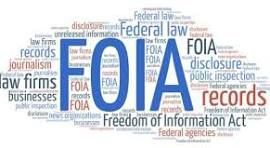
DAN SHAPIRO TO SPEAK AT CLE WEBINAR ON STRUCTURING COMPLEX EASEMENT AGREEMENTS
Chicagoland-based attorney Dan Shapiro will be speaking CLE Webinar on Structuring Complex Easement Agreement. Mr. […] The post DAN SHAPIRO TO SPEAK AT CLE WEBINAR ON STRUCTURING COMPLEX EASEMENT AGREEMENTS appeared first on Shapiro & Associates.
Chicagoland-based attorney Dan Shapiro will be speaking CLE Webinar on Structuring Complex Easement Agreement.
Mr. Shapiro practices in the areas of land use, zoning, governmental relations, municipal law, and civil litigation. He represents a wide variety of private developers as well as governmental entities. He handles complex multi-million dollar projects by working closely with his clients to seek necessary zoning entitlements and/or private public partnership financing mechanisms. He has successfully presented legislative and administrative matters before plan commissions, zoning boards as well as village, city and county bodies. He is a frequent lecturer on the issues such as of land use, public/private partnerships, and local government issues.
Structuring Complex Easement Agreements in Commercial Real Estate Deals
Negotiating Use Rights and Restrictions for Air Space, Mixed-Use Developments, Retail Complexes, and More
A live 90-minute CLE webinar with interactive Q&A
Wednesday, March 22, 2017
1:00pm-2:30pm EDT, 10:00am-11:30am PDT
Early Registration Discount Deadline, Friday, February 24, 2017
This CLE program will prepare counsel to draft complex easement agreements for commercial developments such as mixed-use and retail projects. The panel will also review unique issues that arise with specialized easements such as those for cell towers, wind turbines and air rights.
Description
Reciprocal easement agreements (REAs) often endure for 50 years or more. In recent years, REAs have strained shopping center owners and tenants by presenting obstacles to renovating the centers. As mixed-use developments have become more common, REAs associated with these projects have presented unique challenges. Other complex easements involve use of air space by neighboring construction cranes, cell phone tower leasing, and wind turbine projects.
In addition to accurately describing the easement, its purpose, and necessary parties, the written document should address specific issues such as maintenance, liability, relocation, overburdening, cost allocation, use of an owners’ association, assignability, defaults, notices, remedies, amendments, and lender/lienholder subordination.
Listen as our authoritative panel of practitioners discusses best practices for drafting and negotiating complex easement agreements. The panel will discuss reciprocal easements in commercial developments such as mixed-used and retail projects, as well as issues involved in cell phone towers, wind turbine projects and other restrictions on airspace.
Outline
I. Types of easements
II. Key issues to address in easement agreements
III. Airspace restrictions
IV. Easements in mixed-use developments
V. Easements in retail complexes
Benefits
The panel will review these and other key issues:
- What are the complex, emerging challenges in structuring easements in recent years?
- What are the key elements that should be addressed in commercial and mixed-use developments?
- How can counsel overcome the challenges in drafting and negotiating air space easements?
To REGISTER, Please click here.
The post DAN SHAPIRO TO SPEAK AT CLE WEBINAR ON STRUCTURING COMPLEX EASEMENT AGREEMENTS appeared first on Shapiro & Associates.

CONTACT US TODAY
Contact Us
We will get back to you as soon as possible.
Please try again later.
LOCATION
570 Lake Cook Road, Unit 119
Deerfield, IL 60015
Shapiro & Associates Law | All Rights Reserved |
Created by Olive + Ash.
Managed by Olive Street Design.









